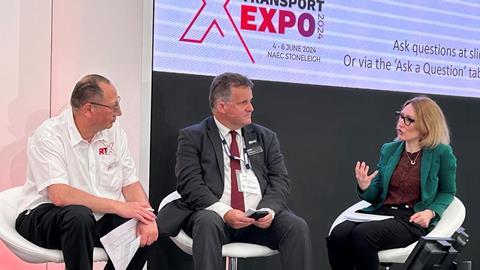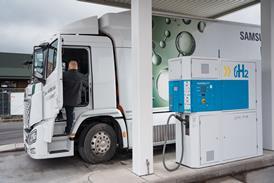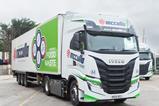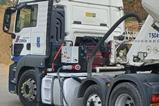As orginally reported by our sister publication Motor Transport, A “net-zero road map” should be the top priority for any newly-elected government, the RHA and Logistics UK have claimed, amid fears that the phase-out date for diesel HGVs is unworkable.

Speaking during a ‘Policy and Compliance Spotlight’ discussion at Road Transport Expo, Chris Ashley, head of policy – environment and vehicles at the RHA, and Michelle Gardner, deputy director – policy at Logistics UK, agreed that the new government must provide immediate “clarity and certainty” to drive investment.
Ahead of next month’s General Election, they also repeated calls for a dedicated logistics minister, demanded cost incentives for lower carbon fuels, and recommended the development of a second-hand market for electric trucks to encourage SMEs to decarbonise.
The sale of diesel HGVs will be phased out between 2035 and 2040, leading some industry commentators to predict a supply chain meltdown as SMEs, and particularly their sub-contractors, struggle to comply with the new legislation.
“The government needs to be leading the way with a road map and setting up a pathway for operators,” Gardner said. “For fleets it’s about reducing emissions immediately and the government could be doing that by incentivising operators with lower costs for lower carbon fuel. We’ll still have a significant number of diesel vehicles on the road at the phase-out date for new diesel vehicles so we need to make sure they’re as carbon efficient as possible. It’s a transition not an overnight change.
“Infrastructure questions also come up all the time with our members,” she added. “How do they get their vehicles charged? How do they get the energy into their depots? Where and when the infrastructure for Hydrogen and battery electric is going to be ready is a big concern to our members. The new government needs to pick this up quickly.”
Gardner said the new government would need to provide operators with as much relevant knowledge and information as possible as its plans develop. “It’s going to be really challenging for everyone, particularly SMEs in terms of finance and infrastructure,” she said. “It’s a huge thing to get your head around.”
Responding to claims that SMEs working on thin margins would be left behind in the industry’s journey to Net Zero, Ashley said that while he accepted that “some exemptions for operators may be necessary”, he remained confident that strategies could be devised to help smaller operators: “Clearly a new government is coming in and I want to be optimistic and say we’re pushing against an open door when it comes to the decarbonisation of transport,” he said. “There is a growing feeling of pragmatism and a realisation that there is no silver bullet but there are trade-offs to be had. A lot of groundwork has been done but we need to build on that. There’s a lot still to do.
“We need to work out a plan,” he concluded. “We need to develop a second-hand market for the use of electric vehicles. That’s what’s needed to bring small operators on this journey. We don’t know the lifespan of an electric vehicle yet so it’s a risk but it’s a risk that has to be managed.”


















